A year ago this week, I lost my beautiful boy Miles. Life hasn’t been the same since.
I got Miles when I was 25. I had just moved back to Connecticut from Chicago, in part in a doomed effort to save my relationship with my college girlfriend and in part because, after two magical years, the music had suddenly seemed to stop in Chicago. (I had lived in a wonderful old house with six cool roommates, drinking and drugging and romancing our way across the city, and then the landlord sold the house to developers and suddenly I was living poor in a ratty apartment in Edgewater and never saw anyone. It was time.) Looking back now it’s clear that I just needed someone to care for, and that’s why I got Miles. It was, as you can imagine, love at first sight.
Miles was neurotic, afraid of children, and impossible to train. He whined incessantly when anxious and he was usually anxious. But he was also incredibly gentle and sweet. They told me at the shelter he’d reach perhaps 35 pounds when fully grown; at his biggest, he broke 60. He was a hound and all nose, as hounds tend to be. He loved people and never so much as growled at another dog. We had a lot of adventures, which were very important to me in a profoundly directionless and hard period of my life - after undergrad, after Chicago, before grad school.
Miles followed me to URI, Purdue, and Brooklyn. When I was getting my masters I was poorer than I ever have been. I’d refuse to turn the heat on in the winter, given that I couldn’t afford to pay the bill, so I’d sleep in long johns and jeans with two hoodies on and grab Miles close to me on my tiny twin bed. He came with me in the passenger seat as I moved from the east coast to Indiana and then, five years later, back the other direction. (Don’t tell UHaul.)
Before we did head back east, though, we got into a situation that was life-altering for the both of us. In 2015 Miles grew ill. Over the course of a few days he became lethargic and then refused to eat. It kind of snuck up on me; at first he was just a little sluggish, and then he couldn’t make it around the block. I took him to the vet, as a flat broke grad student, and they told me he had Immune Mediated Hemolytic Anemia, an autoimmune disorder which was causing his antibodies to attack his red blood cells. They told me that half of the dogs that went in for it didn’t come out. They gave me some steroids and a couple other medication and wished me luck, then charged my credit card $450.
Then, a couple days later, came one of the worst nights of my life. Miles had a stroke. We were lying in bed watching TV when his body gave a kind of shake. He had a look of confusion on his face for a second, and then he began howling like I’ve never heard before. His whole body spasmed and shook. By a miracle of coincidence my friend Ellery was out of town and had left me the keys to his car. I grabbed Miles and barely hung on - he was twisting around so badly that I almost dropped him on the way down the stairs - and threw him into the car. He ended up contorting himself until he was wedged uncomfortably in the footwell of the passenger seat, but I didn’t dare stop long enough to fish him out. The whole time, he howled in pain. We got to Purdue’s animal hospital in a few minutes, and they took him away. They parked me in an empty examination room to wait. Unfortunately I could still hear him howling, for almost two hours after.
When they finally led me in to see him, he was motionless. He didn’t even look at me when I curled up next to him and cried. I went to see him the next day and he was still unable to move at all. I snapped this pic.
They told me he would probably not survive, and that I should consider ending things before the bill got too big. He ended up spending seven full days there and the cost was indeed considerable. But I went to the internet and appealed to the generosity of strangers and, in many little acts of kindness I’ll never forget, they raised over $14,000, which covered the previous week and about six months of future vet visits besides. So I told them to give him all the care they could. The internet saved his life.
It was not easy. His mobility was compromised for the rest of his life; for the first months, his hind legs basically didn’t work at all. His front legs took a little time but were basically back to normal within a few weeks, but the back legs took physical therapy at the animal hospital, carefully ramping up what he could do, and lots of patience. I had to hold him in pooping position for months afterwards and there were some very gross misadventures in that regard even after he had more or less gotten the hang of it. We also went to the vet over 50 times in the following year. He was very patient, throughout it all.
Next came getting him back on his feet. The first part was walking with my support. The following video is pretty late in the process. He had this (quite expensive) harness system and I would snake a hand towel through the back loop and essentially carry his back half at first, his legs clenched up tight for weeks until they slowly descended and started to “swim” in the air for awhile before, finally, starting to touch the ground. (It was during this period that the neighborhood kids started calling him “the suitcase dog.”) Once he actually started to put his own weight down, we started practicing.
Moving on his own came next. He flopped around a lot and had this habit of heading confidently in one direction before suddenly veering off towards a wall, but would act as though that was what he had been intending all along. But - and you’ll forgive me for perhaps anthropomorphizing here - he was filled with determination.
Stairs were a long time coming - months and months - but eventually we got there.
We went through, in total, nine medications in the year that followed. There were several close calls to come and the vet and I once mutually agreed it was time to end it. But he always surprised us and kept on going. He looked a little crazy for a long time afterwards, with the flesh around his head all shriveled up, his belly big and distended, and the big patches of hair they had shaved refusing to grow back:
But in time we got him off the prednisone and almost everything else. (He had to stay on mycophenolate, a drug for people who have had organ transplants, for the rest of his life.) His hair grew back, his belly shrunk, and his head filled out again. He was able to get up onto the bed on his own, up until the last year or so, and he could move around more or less at ease, although there was permanently a hitch in his walk and he never could roll over onto his back in bed again - a serious detriment, given that that was the way he signaled to me that he wanted me to rub his belly.
He started to seriously slow down, the way all dogs do, around his 12th birthday or so. Having an elevator in our building was a huge help. I had time to mentally prepare which proved, in the end, to be terribly insufficient. When the time came he went suddenly; his body finally not up to the challenge, his condition reasserted itself in force. The vet said that he could receive a full blood transfusion, but that it was a matter of time. So I held his paw while they put him to sleep. I don’t think it was the wrong decision, but I still regret it all the time. He was 14.
In the span of a few months last year, I got the coronavirus, endured the beginning of lockdown all alone, said goodbye to one of my dearest friends, lost my job, and watched as they put Miles down. Early summer 2020 was hard. A year later, things are better in many ways. Most ways. But when I come home I’m still surprised not to find him waiting for me. My girlfriend never got to meet him, which is a shame. Still, mostly these days I look back on him and feel happy rather than sad. Mostly.
Thank god for Suavecito.
This Week’s Posts
A lot of content this week - sorry or you’re welcome, depending.
Monday, 5/24/2021 - People of Color Have Agency
An expression of frustration at the liberal mores that, in the name of antiracism, make people of color out to be totally powerless, buffeted by the winds of history that are blown by white people exclusively. We’ve created a world where to be progressive means to treat people of color, and Black people especially, as children - noble children, but children. That’s not enlightened, it’s not progress, and it makes liberation for people of color harder rather than easier. But I tell my sorrows to a stone.
Tuesday, 5/25/2021 - You (Still) Can’t Sit with Us
A little complaint about the way that social issues within the world of journalism distort the industry and who advances within it.
Wednesday, 5/26/2021 - from the archives: the Aum Example (subscriber only)
Published initially in 2013, a meditation on the example of Aum Shinrikyo and the lessons it offers for considering terrorism and risk.
Thursday, 5/27/2021 (AM) - Please, Think Critically About College Admissions
An addendum to my previous piece about the SAT. I continue to lament about the lack of critical thinking on the part of liberals on this subject. Here’s what I think people in academia would desperately like to avoid talking about: the perception that a high number of Asians in the student body is considered unattractive to applicants of other races. I have no proof that this attitude is prevalent, so I have not written a post about it. But I have discussed it in the abstract with many people in academia and I’m convinced that it is real.
I’m talking about the “too many Asians at the library” problem. It’s not, of course, an attitude that anyone I know explicitly endorses for themselves. Were I a journalist I would struggle to get anyone to comment on it on the record, though I know I could get a few quotes on background. It’s one of those things that is referred to vaguely, something people “out there” worry about. Well, yes, there is this fear that unenlightened schools hold, it’s unfortunate, no of course no one I know frets about it…. Almost no one I’ve talked to about this (and I’ve been pressing the issue since 2018) admits that it happens at their schools, although a couple have said that they think their admissions departments have this concern. Many though say that they think this is a fear that exists in general in higher education, particularly given that declining enrollments have colleges that are not used to having to do so fighting for applicants. To a degree that I think the average person doesn’t understand, most colleges are extremely sensitive to even minor changes in their enrollment figures, and even highly selective colleges care a great deal about their reputation and their marketing. I think there’s a quiet fear that too many Asian students hurts admissions.
Why would applicants of other races care about the percentage of Asian students at potential schools? I think, first, there’s a fear of them “breaking the curve,” or whatever the term is - the feeling that, because Asian students have a reputation for academic excellence, they will make academic competition too difficult, and outcompete students from other races for scholarships, opportunities, and awards. The second thing, I think, is a grim social preference about who applicants would like to hang out with, although I suppose at schools with truly high Asian populations this could be spun as a preference for diversity. Both of these seem straightforwardly racist to me. But if this is a real or perceived attitude among potential applicants, then college administrators are almost certainly working to subtly address them. Advocacy for race-based affirmative action to address gaps in Black and Hispanic enrollment in and of itself is noble. But I suspect it’s being used as justification for ugly practices.
Perhaps an enterprising journalist out there can get people to go on the record.
Thursday, 5/27/2021 (PM) - I'm afraid I can't dunk about the lab leak
My conflicted feelings about the status of the “lab leak” as a discursive phenomenon; I know nothing at all about epidemiology and thus have no opinion on the origins of Covid-19, but I think the conversation about this subject involves several different bad tendencies and positions.
Friday, 5/28/2021 - Red Handles (subscriber only)
My frustrations about a disingenuous way to express “concern” for my mental health.
From the Archives
Here’s a piece I wrote more than six years ago now, about the infamous Rolling Stone article on the (utterly manufactured, it turned out) accusation by a student of gang rape at a frat house at the University of Virginia. The broader issue is, I think, only more salient now: progressive language norms result in shutting down responsible and natural questions and inquiry into certain topics, which only results in deeper backlash when the official story changes. The social prohibition against asking difficult questions has only deepened since I wrote this piece.
That particular scenario was really indicative of a toxic discursive culture. Though public skepticism first emerged from right-of-center places like Reason, in fact liberal, feminist people were expressing concern from the minute the story was published - but they were expressing it very quietly. I knew multiple feminist women at the time who pointed out, privately, that the story simply didn’t reflect on what we knew about most campus rape; gang-rape-as-frat-initiation-ceremony seemed entirely fanciful. But these women said nothing until the story had already blown up badly. They didn’t want to distract from the national conversation on sexual assault. (Or, less charitably, they didn’t want to be perceived to be doing so.) I’m sure there were many more like them. And so the story fell apart and conservatives had a field day and no one had gotten out ahead of it out of commitment to the cause or fear or both.
You can be an independent thinker, or you can be a good soldier for your movement. You can’t be both.
Song of the Week
My friend Tyler brought a Tricky album into high school one day, played it for my brother, and soon I was sitting near his door at home listening to him play it… Music changed, for me. Tricky’s first three albums are about as good a run to start a career as I can imagine. What followed was mostly yikes, but for me there’s still so much magic in his early stuff. Eerie and haunting and alien and pulsing with musical life.
Substack of the Week
Horrible Lists by Ellie Shechet
Horrible Lists is infrequently updated - for all I know Shechet may have been one of the people who left Substack for dubious political reasons in past months - but it’s a gem. It’s a collection of lists, numbered or bullet pointed, based on some sort of theme or central idea. It’s all very abstract and quite funny, inventive without seeming “clever” in the bad sense, and with none of the annoying meme clichés common to a lot of internet humor. From “What podcast episode synopses sound like sometimes”:
Nobody likes to be called self-indulgent. But when one woman accidentally drowned her plant and got covered in soil water while writing pandemic poetry in the bathtub, she was forced to make a surprisingly difficult choice.
Question: When we close our eyes, do we disappear? You’d think the answer is no—but it’s a lot more complicated than that, although the answer is still no. For the real explanation, we talk to an 104-year-old beekeeper in the Canary Islands and my cat Patricia.
Caller Ashley Lewis can’t find her math notebook from 7th grade. The search took us all the way down to an unmarked grave in Patagonia.
Book Recommendation
Why You Should Be a Socialist, Nathan Robinson, 2020
The “socialist moment,” or whatever, is at least 10 years old, with Occupy Wall Street now a decade in the past. It’s hard to say how I feel about it all, really, though it is nice that socialism has been (re)normalized in daily political conversation. Book-wise, it’s been a mixed bag; there’s a lot of interesting texts that have floated along on the socialist wave, but a lot of dross, too, particularly of the “our moment has arrived!” type. A lot of people got high on their own supply and bought into the notion that the surge in attention for socialism meant a surge in socialist power. There are people and publications that made bold claims about a supposed youth revolution - always a stupid thing to believe in - and then went nowhere fast. I won’t name them.
I like this book because it is optimistic without being triumphalist and plainspoken without being condescending. This is the kind of text we need more of - books about socialism that explain, in simple terms, why capitalism is neither perfect nor inevitable and that there are alternatives that are more humane and more fair for everyone. Robinson does a good job of that here; the subject matches his strengths as an intellect. There are a lot of socialist explainers to choose from these days, but this is one of the strongest entries in that micro-genre.
Comment of the Week
Having partisan journalism isn't necessarily a problem if everyone knows the rules of the game. It also wouldn't be a problem if - as in the golden age of yellow journalism - there was still diversity of voice, with several papers in any city and often with different owners. Regional voices also still had primacy. Now there is no diversity of voice, ownership is hyper-concentrated, the news is the same from Key West to Kauai, and there is still the slightest veneer of prestige and balance. Granted the media has been doing its absolute best over the past six years to surrender what's left of their cachet, but tens of millions of people still think "well if this big shiny newspaper said it, I'm sure it's being reported in good faith and is based on something other than stenography."
If everyone knew where they stood and that the media was in the business of selling narratives, we'd be significantly better off than now. We have the worst of both worlds. A rotten, partisan system with a skinsuit of respectability. - Always Adblock
That’s a wrap! Enjoy your weekend.




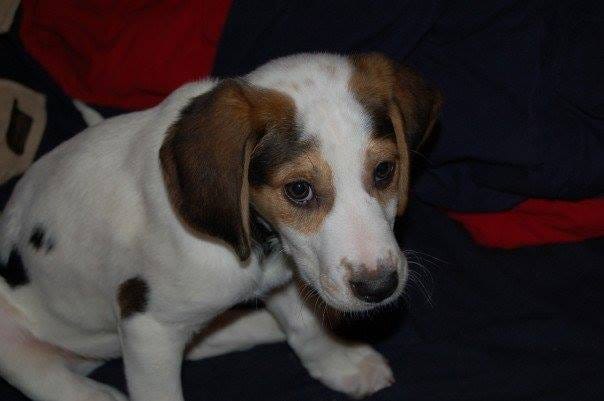
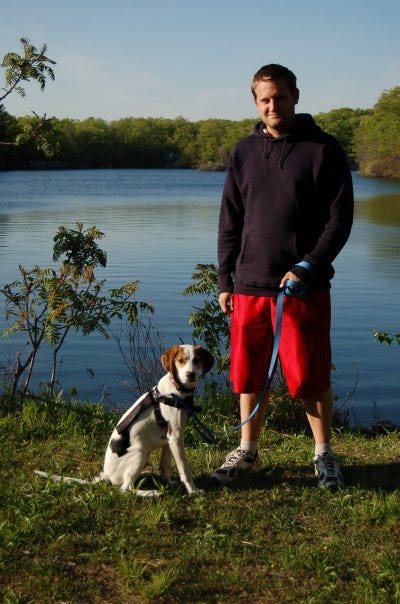
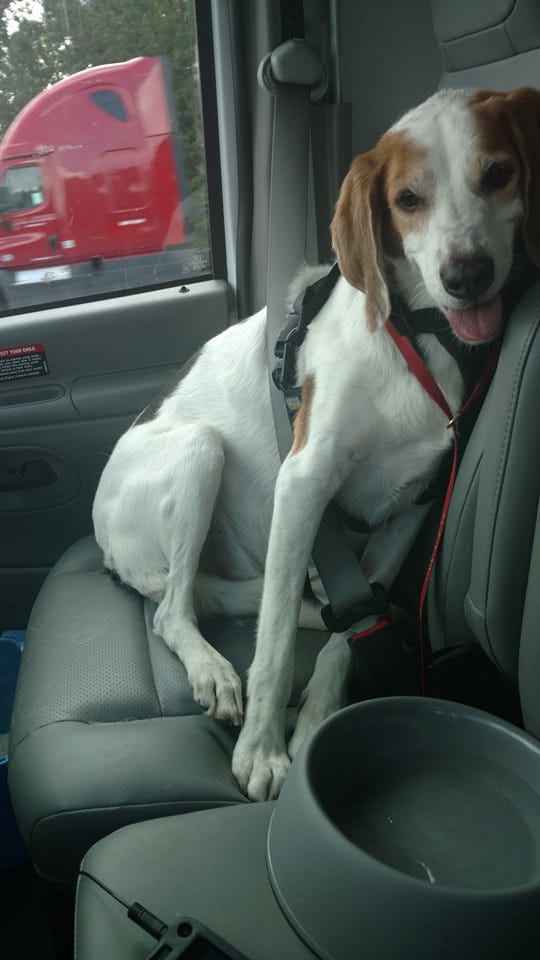
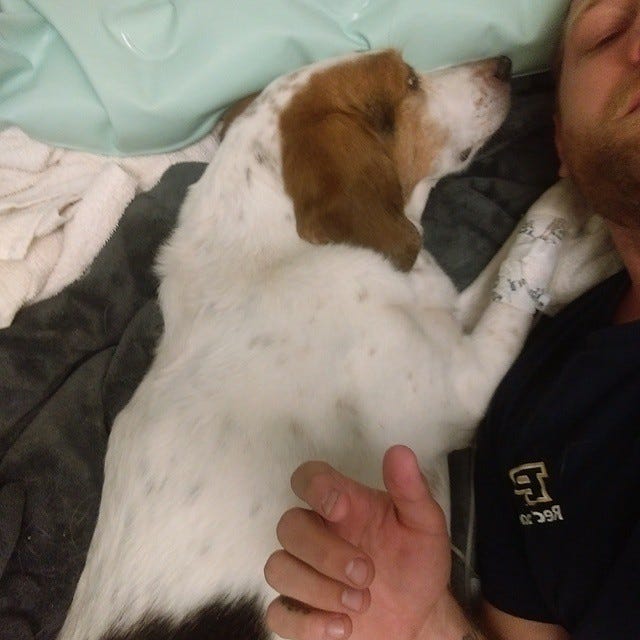
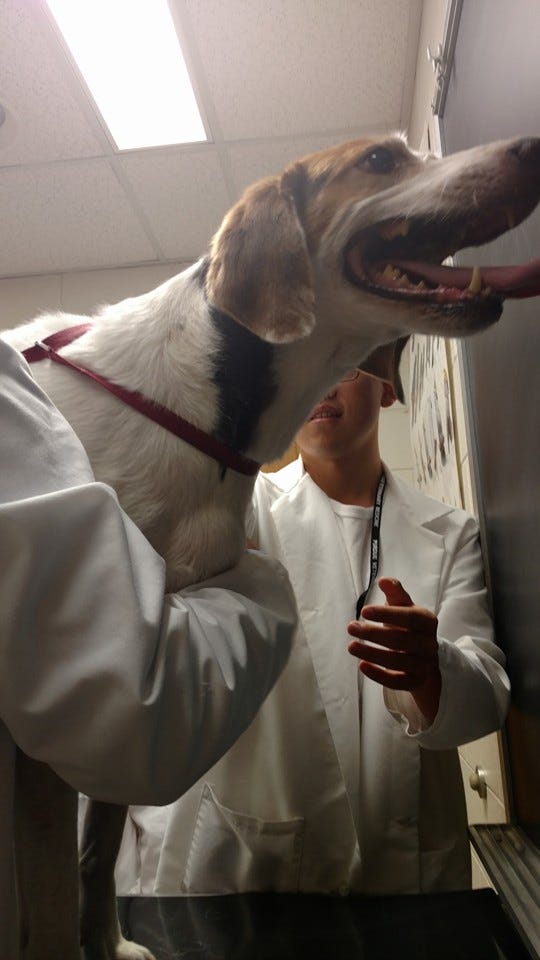
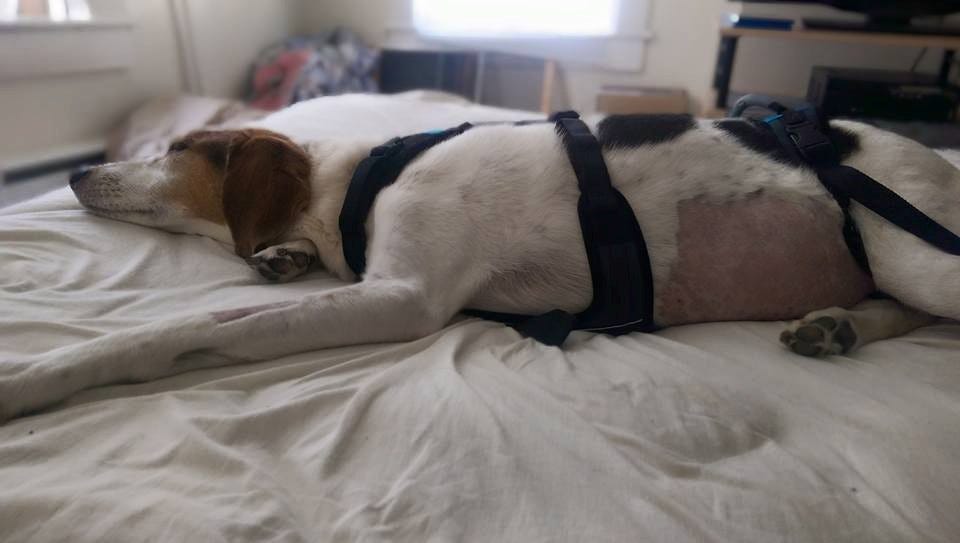


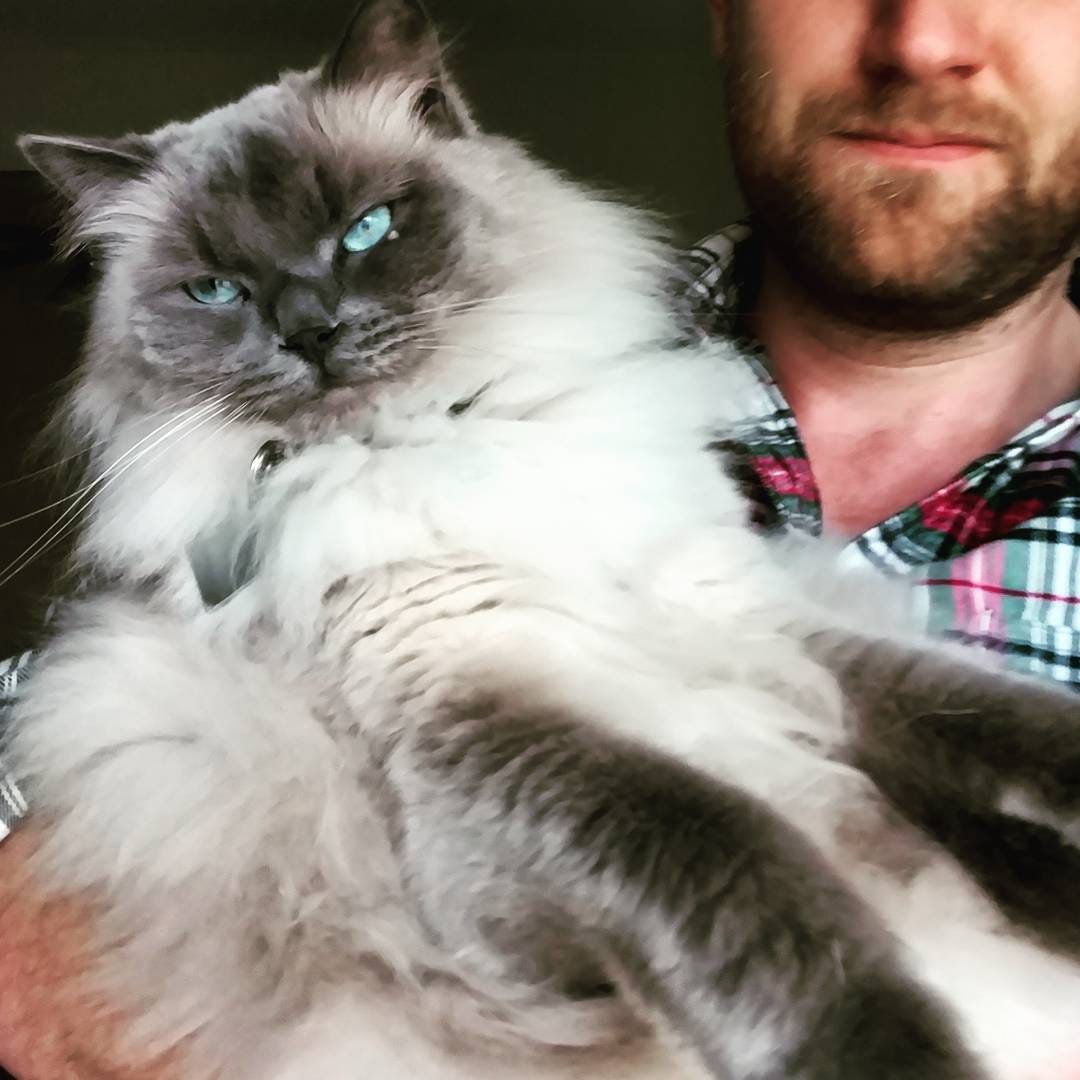

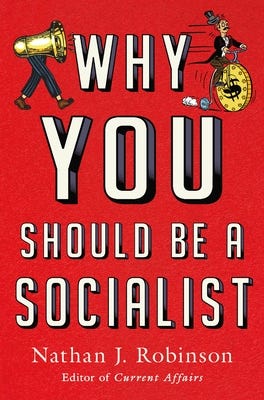
Miles was a very good boi! You took excellent care of him. Much love to Suavi!
Thanks for showcasing my comment! I'm glad you found it interesting.
Tonight I'll pour a drink in Miles' honor.